
When it comes to storing your 1inch tokens securely, finding the right wallet option is crucial. With so many options available, it can be overwhelming to choose the best one for your needs. In this guide, we will explore different wallet options and provide tips on how to safely store your 1inch tokens.
Firstly, it is important to understand the different types of wallets available. There are hardware wallets, such as Ledger and Trezor, which offer offline storage and are considered the most secure option. Software wallets, such as MetaMask and MyEtherWallet, are another popular choice and provide convenient access to your tokens through a web or mobile interface. Lastly, there are also paper wallets, which involve printing out your private keys and keeping them in a secure physical location.
Regardless of the wallet option you choose, there are several important security measures to consider. Firstly, always ensure that you are downloading wallets from official sources to avoid malware or phishing attacks. Use strong, unique passwords and enable two-factor authentication whenever possible. It is also recommended to keep your wallet software up to date to benefit from the latest security improvements.
In addition to these general security measures, there are specific steps to take when storing your 1inch tokens. Firstly, make sure to securely back up your wallet’s private keys or recovery phrase. This is essential in case of loss, theft, or damage to your device. Consider using a hardware wallet or a secure offline storage method, such as a USB drive or a paper wallet, to store your backup. Keep your backups in separate physical locations to minimize the risk of losing access to your tokens.
In conclusion, storing your 1inch tokens securely is of utmost importance. By understanding different wallet options and implementing proper security measures, you can protect your tokens from theft or loss. Remember to always exercise caution and stay informed about the latest security practices. Safeguarding your 1inch tokens will ensure that you can enjoy the benefits of this innovative technology with peace of mind.
How to Safely Store Your 1inch
1inch is a decentralized exchange aggregator that allows users to trade tokens across multiple decentralized exchanges. As with any cryptocurrency, it is essential to store your 1inch tokens securely to protect them from theft or loss. Here are some options for safely storing your 1inch:
Hardware Wallet
A hardware wallet is a physical device that provides an extra layer of security for your 1inch tokens. These wallets store your private keys offline, making it virtually impossible for hackers to gain access to your funds. Popular hardware wallets include Ledger and Trezor. To store your 1inch on a hardware wallet, simply connect the device to your computer and follow the instructions provided by the wallet manufacturer.
Software Wallet

If you prefer a more convenient storage solution, you can opt for a software wallet. There are several software wallets that are compatible with 1inch, such as MetaMask and MyEtherWallet. These wallets are usually available as browser extensions or mobile apps and allow you to access your tokens from multiple devices. It is important to choose a reputable software wallet and enable two-factor authentication for added security.
Remember: When using a software wallet, always ensure that your device is free from malware or viruses. Keep your wallet software and operating system up to date to protect against potential vulnerabilities.
Cold Storage
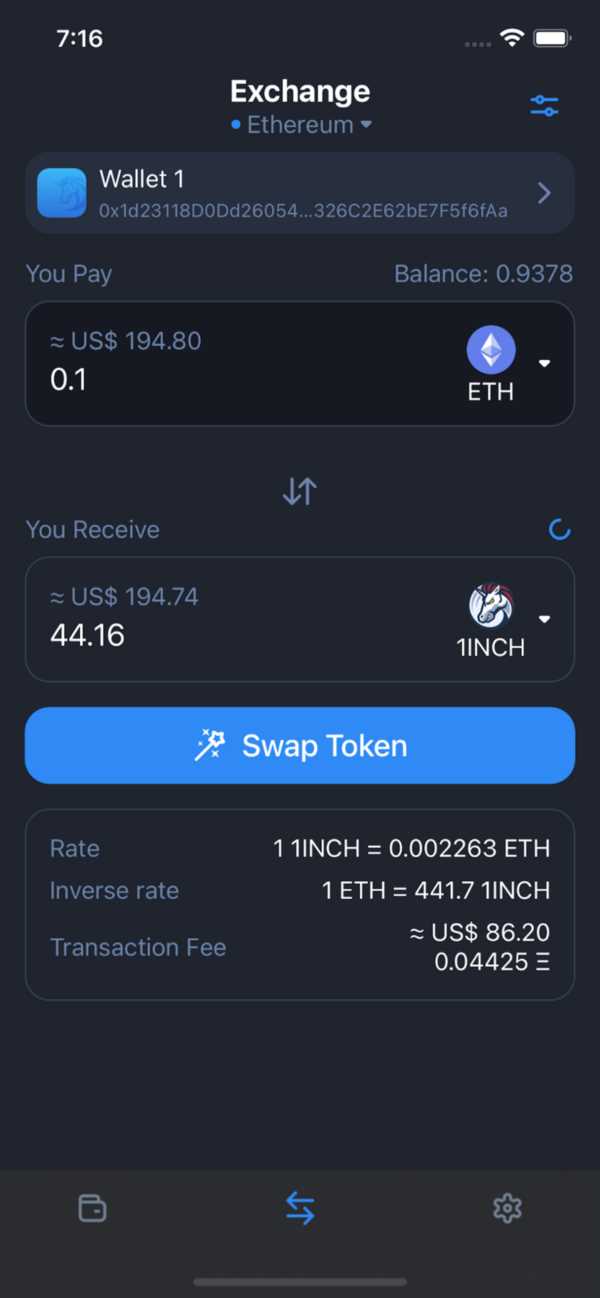
Cold storage refers to storing your 1inch tokens offline, away from any internet connection, to minimize the risk of hackers gaining access to your funds. One method of cold storage is using a paper wallet, which involves printing out your private key and public address on a physical piece of paper. Make sure to keep your paper wallet in a safe and secure location, as it represents full control over your 1inch tokens.
Tip: Consider creating multiple copies of your paper wallet and storing them in separate secure locations to ensure redundancy.
Regardless of the storage option you choose, it is essential to keep backup copies of your private keys or recovery phrases in a safe place, such as a fireproof safe or a secure password manager. Losing access to your private keys can result in permanent loss of your 1inch tokens, so it is crucial to take precautions to safeguard your assets.
A Guide to Wallet Options
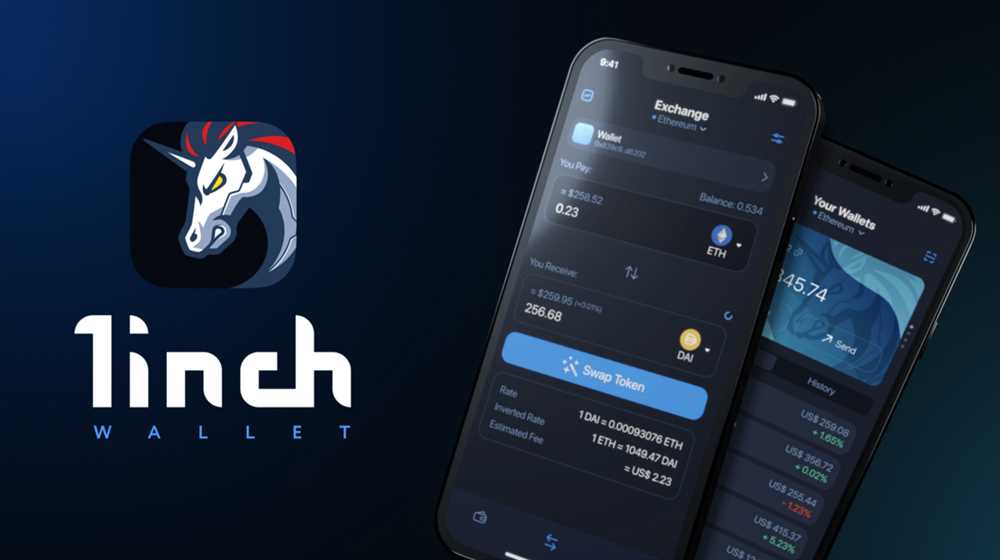
When it comes to storing your 1inch safely, there are various wallet options available for you to consider. These wallet options differ in terms of security, convenience, and accessibility.
1. Software Wallets:
Software wallets are applications that can be downloaded onto your smartphone or computer. They can be further categorized into hot wallets and cold wallets. Hot wallets are connected to the internet and allow for easy access and transactions. Cold wallets, on the other hand, store your 1inch offline, ensuring maximum security.
2. Hardware Wallets:
Hardware wallets are physical devices designed to securely store your 1inch offline. They are usually in the form of a USB drive and are considered one of the most secure wallet options available. Hardware wallets are protected by encryption and require a physical interaction to access your funds, making them highly resistant to hacking attempts.
3. Paper Wallets:
A paper wallet is a physical copy of your 1inch wallet’s private and public keys. It is basically a printed piece of paper that holds all the necessary information to access your funds. Paper wallets are highly secure as they are not connected to the internet. However, it is important to keep them safe from physical damage, loss, or theft.
4. Online Wallets:
Online wallets are web-based wallets that can be accessed from any device with an internet connection. These wallets are convenient for accessing your 1inch on the go, but they come with higher security risks compared to other options. Online wallets are more vulnerable to hacking and phishing attacks, so it is crucial to choose a reputable and secure online wallet provider.
Before choosing a wallet option, it is important to consider your security needs, frequency of transactions, and convenience. It is also recommended to diversify your storage solutions and use a combination of different wallet options to enhance the security of your 1inch holdings.
Hardware Wallets: The Safest Option
If security is your top priority when it comes to storing your 1inch tokens, hardware wallets are the way to go. These physical devices offer the highest level of protection against cyber threats, such as hacking and phishing attacks.
A hardware wallet is a small device that securely stores your private keys offline, away from the internet. It encrypts your keys and requires you to physically confirm transactions, providing an extra layer of security.
There are several reputable hardware wallet options available that support storing your 1inch tokens. Some popular choices include:
Trezor:
Trezor is one of the most well-known hardware wallet manufacturers, trusted by many cryptocurrency enthusiasts. Their devices offer a user-friendly interface, robust security features, and compatibility with various cryptocurrencies, including 1inch.
Ledger:
Ledger is another popular hardware wallet brand that has gained a strong reputation in the industry. Their wallets come with a secure chip and provide support for 1inch tokens, along with many other cryptocurrencies.
When using a hardware wallet, it’s essential to follow these best practices:
- Ensure Authenticity: Only buy hardware wallets directly from the manufacturer or authorized resellers to avoid purchasing tampered devices.
- Enable PIN and Passphrase: Set up a PIN and passphrase for an extra layer of protection.
- Backup Your Recovery Phrases: Store your recovery phrases offline in a safe place. These phrases are crucial for restoring access to your wallet if the device is lost or damaged.
- Verify Transactions: Always double-check the transaction details on the device’s screen before confirming.
By following these guidelines and using a hardware wallet, you can have peace of mind knowing that your 1inch tokens are stored in the safest way possible.
Software Wallets: Convenience with Security

Software wallets offer a convenient way to store and manage your 1inch tokens, while also providing a high level of security. These wallets are essentially applications or programs that you can install on your computer, smartphone, or tablet.
Advantages of Software Wallets
There are several advantages to using a software wallet:
- Accessibility: Software wallets are easily accessible through the devices you already use regularly, such as your computer or smartphone. This makes it convenient to manage your 1inch tokens on the go.
- User-friendly: Most software wallets come with intuitive interfaces that make it easy for both beginners and experienced users to navigate and manage their tokens.
- Multiple tokens: Software wallets often have the capability to store and manage multiple types of tokens, including 1inch. This means you can manage all your tokens in one place, reducing the need for multiple wallets.
Security Measures
While software wallets offer convenience, it’s important to take certain security measures to protect your 1inch tokens:
- Choose a reputable wallet: Make sure to research and choose a software wallet from a trusted source. Look for wallets that have a strong reputation and are regularly audited for security.
- Enable two-factor authentication (2FA): Two-factor authentication adds an extra layer of security to your wallet. It requires you to enter a code, usually sent to your mobile device, in addition to your password, when accessing your wallet.
- Backup your wallet: Always backup your wallet’s recovery phrase or private keys and store them securely offline. These can help you recover your wallet in case of device loss or other unforeseen circumstances.
- Keep your software updated: Regularly update your software wallet to ensure you have the latest security patches and improvements.
Examples of Software Wallets

There are several software wallets available that support the storage and management of 1inch tokens:
| Wallet Name | Platforms | Features |
|---|---|---|
| MetaMask | Browser (Chrome, Firefox, Brave) | – Easy integration with decentralized applications – Multi-chain support – Customizable transaction fees |
| Trust Wallet | iOS, Android | – Built-in decentralized exchanges – DApp browser – Staking support |
These are just a few examples, and there are other software wallets available as well. Make sure to do your own research and choose a wallet that aligns with your needs and preferences.
By following the necessary security precautions and choosing a reputable software wallet, you can enjoy the convenience and accessibility of managing your 1inch tokens while keeping them secure.
Cold Storage: Protecting Your Assets Offline
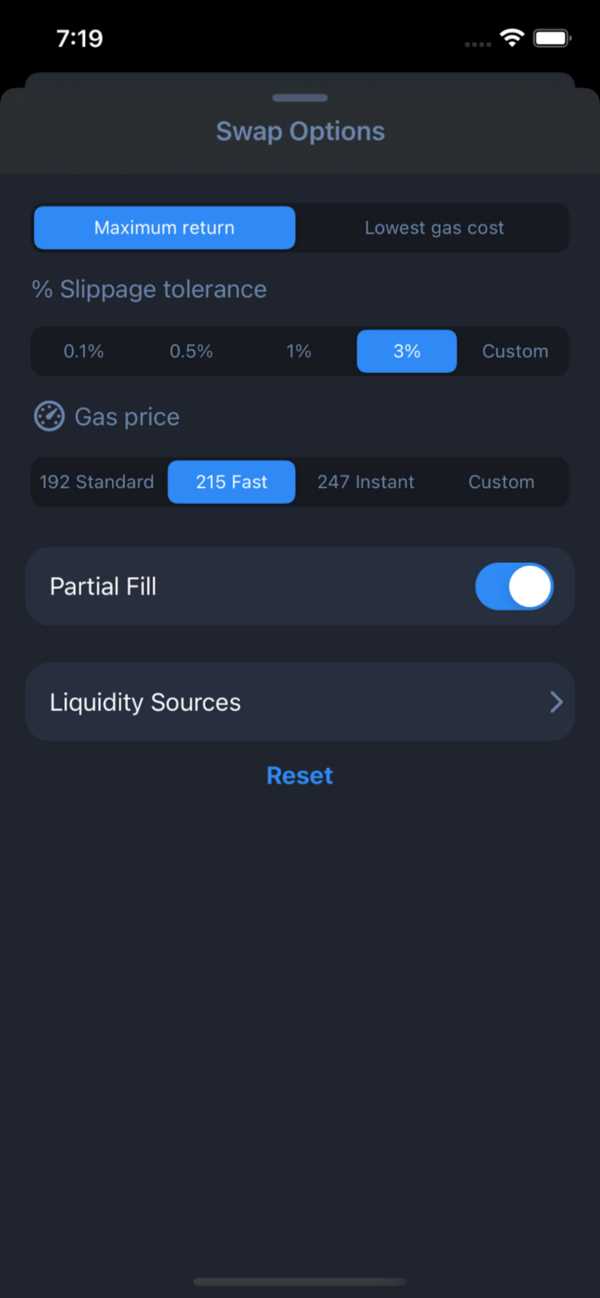
When it comes to safeguarding your 1inch tokens, cold storage is one of the most secure methods you can use. Cold storage refers to storing your assets offline, away from the internet, and thereby reducing the risk of hacking or online theft. Here are some popular cold storage options for protecting your 1inch:
Hardware Wallets
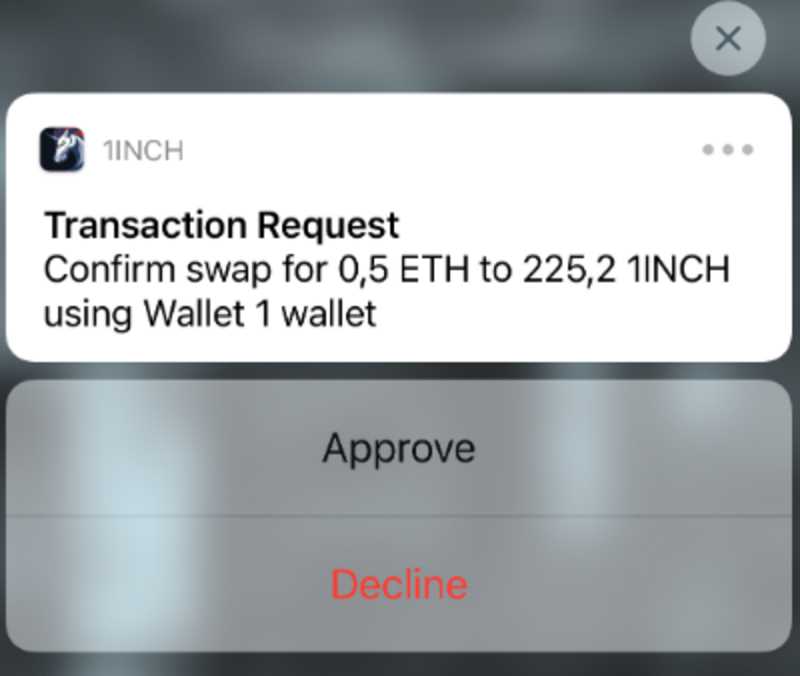
Hardware wallets are physical devices that store your 1inch tokens offline. They come in the form of USB-like devices and are designed to keep your private keys secure. When using a hardware wallet, your private keys never leave the device, making it extremely difficult for hackers to access your funds. Examples of popular hardware wallets include Ledger and Trezor.
Paper Wallets
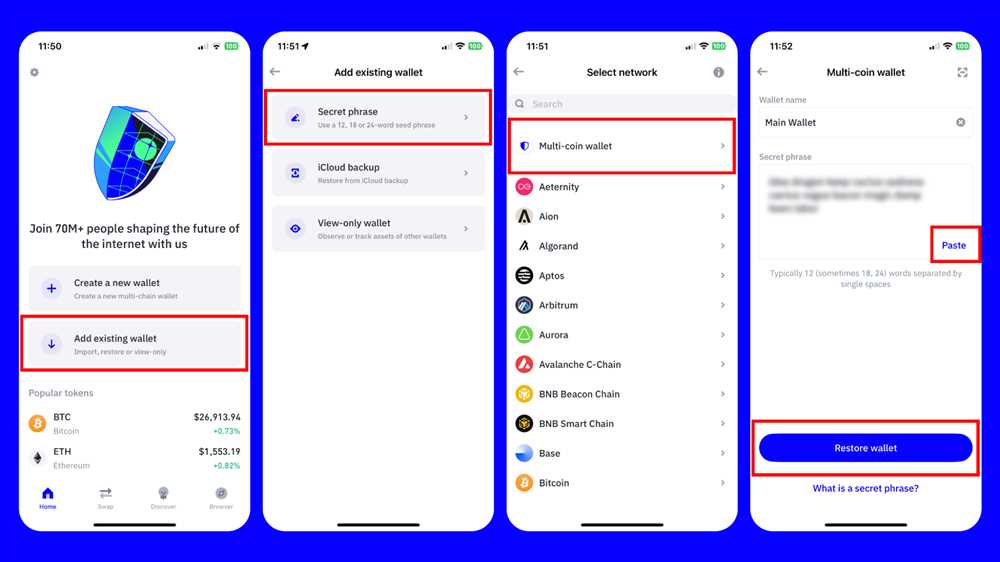
A paper wallet is a physical printout of your 1inch public and private keys. The advantage of using a paper wallet is that it is completely offline, reducing the risk of online attacks. However, it’s important to store your paper wallet in a safe and secure location, as physical theft can also be a risk.
When generating a paper wallet, ensure that you use a trusted and secure method. Avoid using online generators and instead opt for offline generators. It’s also recommended to laminate your paper wallet to protect it from wear and tear and potential water damage.
Offline Wallets
Another cold storage option is an offline wallet, which is a wallet that is not connected to the internet. This can be achieved by creating a wallet on an air-gapped computer that has never been connected to the internet. By keeping your wallet completely offline, you eliminate the risk of hacks or online attacks.
While offline wallets provide high levels of security, they also require careful handling to avoid accidental loss or damage. Make sure to back up your offline wallet and store the backups securely, preferably in multiple locations.
Remember, the key to cold storage is to keep your assets offline and utilize secure storage methods. By taking these precautions, you can ensure the safety of your 1inch tokens and minimize the risk of unauthorized access or theft.
Multi-Signature Wallets: Enhanced Security Measures
When it comes to securing your 1inch tokens, using a multi-signature (multisig) wallet is an excellent choice. Multisig wallets provide enhanced security measures by requiring multiple signatures to authorize transactions.
Unlike traditional wallets where a single private key is used to access funds, multisig wallets require the cooperation of multiple parties to execute a transaction. This means that even if one person’s private key is compromised, an attacker would still need access to the other required private keys to make any unauthorized transfers.
One common implementation of multisig wallets is the “M of N” scheme, where M represents the number of required signatures and N represents the total number of possible signers. For example, a 2 of 3 multisig wallet would require at least two out of the three possible signers to approve a transaction.
By using a multisig wallet, you can distribute the responsibility for managing and securing your 1inch tokens among multiple parties. This enhances security and reduces the risk of a single point of failure.
Additionally, multisig wallets can also be combined with hardware wallets for added security. Hardware wallets provide an extra layer of protection by storing private keys offline and requiring physical verification to authorize transactions. When combined with a multisig setup, this creates a highly secure environment for storing and managing your 1inch tokens.
As with any wallet solution, it’s important to thoroughly research and understand the features and security measures provided by the specific wallet provider you choose. Look for wallets that have undergone rigorous security audits and have a proven track record of protecting user funds.
In conclusion, using a multisig wallet is an effective way to enhance the security of your 1inch tokens. By requiring multiple signatures to authorize transactions, multisig wallets provide an added layer of protection against unauthorized access. Consider combining a multisig wallet with a hardware wallet for the highest level of security.
Question-answer:
What is 1inch?
1inch is a decentralized exchange aggregator that sources liquidity from various exchanges to help users find the best prices for their trades. It is built on the Ethereum blockchain and aims to provide users with the most efficient trading experience possible.
How do I store my 1inch tokens safely?
There are several wallet options available for storing your 1inch tokens safely. The safest option is to use a hardware wallet like the Ledger Nano S or Trezor. These wallets store your tokens offline, providing an extra layer of security. Alternatively, you can also use a software wallet like Metamask or MyEtherWallet, but make sure to always keep your private keys secure and backup your wallet regularly.